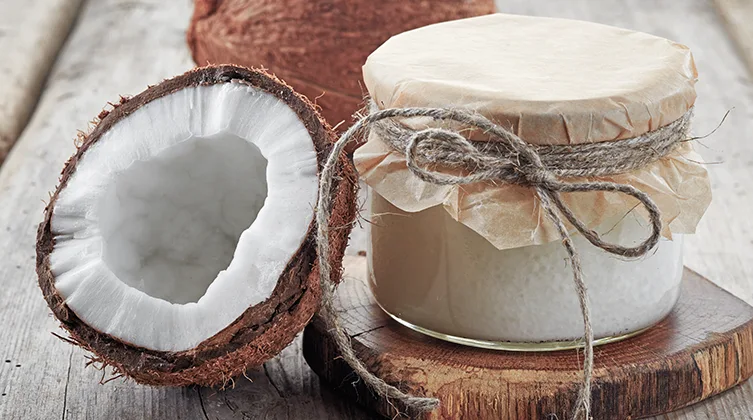The spotlight is on coconut oil this week with this review released by the American Heart Association. Ideally, you should check out the original paper yourself. If it’s too much reading and scientific jargon, I totally understand, just stick to this blog. Now where to even begin…
The coconut oil hype
Coconut oil emerged onto the nutrition scene and quickly raised the wellness ranks to become a reigning magical oil. Coconut oil has been touted as a cure-all. Its health benefits range broadly to include boosting metabolism, aiding fat loss, improving the immune system, antimicrobial functions, protecting against illnesses like Alzheimer’s, arthritis, diabetes and even fighting cancer, and so forth.
In recent years, I’ve observed (and not practiced) the popularisation of coconut oil pulling; a practice of swishing coconut oil around your mouth for several minutes and then spitting it out. Sounds divine? More on that in a follow up blog.
The American Heart Association review
Firstly the recent review paper published by the AHA is not a scientific study. It does not present any “new” data. It is a review of dietary fats (excluding omega-3 fatty acids) and cardiovascular disease (CVD) risk.
The information on coconut oil is one small component of the overall paper. Here’s a summary of what it states pertinent to coconut oil:
• Coconut oil is comprised of about 82% saturated fat, which is far greater than other oils.
• Saturated fat raises LDL-cholesterol (the supposedly “bad” cholesterol).
• Coconut oil is high in lauric acid, the main form of saturated fat in coconut oil. Lauric acid raises HDL-cholesterol (the supposedly “good” cholesterol), resulting in a slightly reduced ratio of LDL:HDL. However, this effect is largely negligible according to the AHA review.
• One study compared coconut oil, butter and vegetable oil. Coconut oil and butter raised LDL-cholesterol compared with safflower oil.
• Coconut oil also raised LDL-cholesterol compared with olive oil = thumbs up for EVOO!
• High LDL-cholesterol is a strong predictor of CVD events.
• The AHA advisory conclusion: “we advise against the use of coconut oil.”
And, that’s it! Journalist really have grabbed the ball and ran with it with their scare mongering headlines such as “Coconut oil ‘as unhealthy as beef fat and butter’” and “So Coconut Oil Is Actually Really, Really Bad For You”.
The truth bomb
There is really, really limited direct science on the health benefits or negligence of coconut oil. The conclusive statement made by the AHA advisory is based on inductive reasoning.
E.g. Coconut oil is high in saturated fat –> Saturated fat raises LDL-cholesterol –> LDL-cholesterol is really, really bad. So bad, we don’t care about the LDL: HDL ratio –> High-LDL is a very strong indicator of CVD risk –> Coconut oil is pretty much as bad as butter = Their conclusion above, despite no scientific studies assessing the direct relationship between coconut oil consumption and CVD risk in humans.
Final note on carbohydrates
The AHA review does not comprehensively discuss low-fat diets. The focus is on saturated fats versus unsaturated fats. Indeed, the AHA almost seems obsessed with their PUFAs (polyunsaturated fatty acids).
The discussion of “low-fat, high-carbohydrate diets” on page 7-8 concludes no beneficial effect for carbohydrates in lowering CVD risk. Despite the carbohydrate sources being unspecified.
As a final remark, the authors “note that a trial has never been conducted to test the effect on CHD outcomes of a low-fat diet that increases intake of healthful nutrient-dense carbohydrates and fiber-rich foods such as whole grains, vegetables, fruits, and legumes that are now recommended in dietary guidelines.”
What about Dean Ornish’s study, The Lifestyle Heart Trial? Ah well! It must have been forgotten.
Take homes
• Coconut oil is not inherently bad. Nor is it a miracle cure-all.
• The “whole” diet matters.
• The AHA loves promoting polyunsaturated fats. ❥❥❥❥’s
• Focusing on fats alone is reductionist. We eat food, not nutrients.
• Comparison to sub-types of carbohydrate, such as dietary fibre, in the diet is necessary.
• Don’t go crazy over coconuts.





